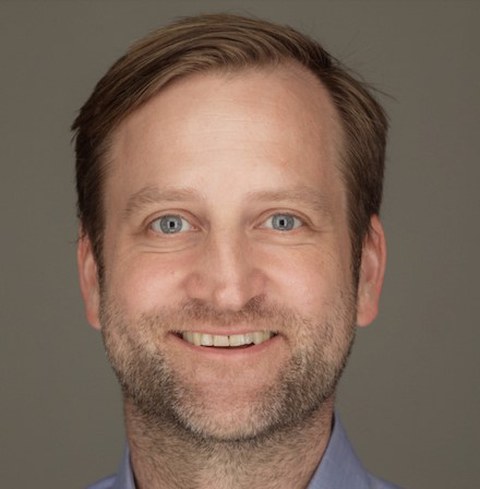ZIH-Colloquia 2022
15. December 2022, 15:00 CET, Andreas-Pfitzmann-Bau, Room APB 1004 :
Dr. Joseph Schuchart (ICL, University of Tennessee, Knoxville, USA) -
„Task-Based Programming at Scale: Challenges and New Approaches“ (slides)
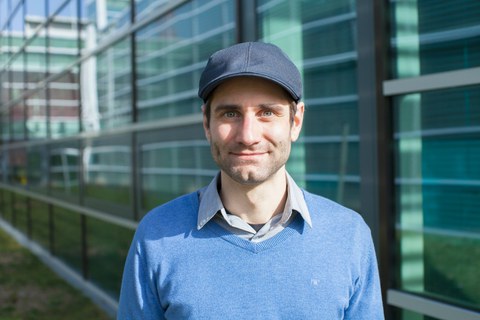
Dr. Joseph Schuchart
Task-based programming models carry the promise of perfectly hiding synchronization latencies by oversubscribing the available computational resources with work items defined by the application. Many such models have been proposed, including in software standards such as OpenMP.
However, so far none of these models have been widely adopted by the community. This talk will look at the challenges of task-based programming from different levels of the software stack and present some of the work currently done in the DISCO group at ICL. The topics will range from additions to the MPI standard over a novel programming model based on abstract task graphs to the challenges faced by application developers.
Dr. Joseph Schuchart is currently working as a research scientist at the Innovative Computing Lab at the University of Tennessee, Knoxville where he is involved in several projects concerning MPI and parallel programming models. His main research interests are located at the intersection of parallel programming, communication networks, and performance analysis tools. Dr. Schuchart is an active member of the MPI Forum where he heads the RMA working group. He received his PhD from the University of Stuttgart in 2020 and his graduate degree in Computer Science from TU Dresden in 2012.
24. November 2022, 15:00 MEZ, Hörsaal A317 Willersbau:
Dr. Philipp Altrock (Max-Planck-Institute for Evolutionary Biology, Plön) -
„Modeling Cancer Ecology to Understand Tumor Evolution“ (slides)
The accumulation of genetic or epigenetic changes over a lifetime is called somatic evolution. This process inevitably occurs in multicellular organisms and can lead to cancer development. The conventional dogma of cancer evolution postulates that the observed genomic changes are due to the acquisition of driver mutations that improve cell-intrinsic fitness independent of context. In contrast, increasing evidence suggests that genetic variation, cell-phenotypic diversity, and spontaneous changes in the environment lead to context-dependent fitness differences. The resulting processes are, e.g., driven by inflammatory signaling in the tumor microenvironment or the exchange of growth factors that act as public goods. An important question is how selection in these complex environments leads to disease progression. The tumor (micro)environment provides a powerful adaptive force that codetermines the fate of the disease and could inform treatment options. One can integrate biological and clinical data with mathematical modeling to ask how stochastic effects and nonlinear selection dynamics shape disease onset and progression and shape the observed cancer heterogeneity. The resulting mathematical models can improve our understanding of the roles of selection, temporal variation, and spatial variation during cancer evolution.
Philipp Altrock is a Project Group Leader at the Max Planck Institute for Evolutionary Biology in the Department of Evolutionary Theory. Dr. Altrock’s research focuses on cancer evolutionary dynamics and cancer systems immunology. From 2017-21, he was a group leader at Moffitt Cancer Center in Tampa, Florida. He did postdoctoral work at Harvard University and the Dana-Farber Cancer Institute in Boston, MA (2013-17), obtained his doctorate from Kiel University (2011), and received his degree in physics from Leipzig University (2007). In 2013, he was awarded a Leopoldina fellowship for his work at Harvard, and in 2021 he received the Moffitt Cancer Center 2020 Junior Faculty Research Award. Dr. Altrock is an expert in evolutionary game theory, mathematical oncology, and he applies principles of statistical mechanics, ecology, and evolution to better understand cancer biology.
10. November 2022, 15:00 MEZ, Hörsaal A317 Willersbau:
Dr. Niloy Ganguly (Indian Institute of Technology, Kharagpur) - „The Story of Pretraining on Crystals and Genes“
Dr. Niloy Ganguly will focus in his talk on a primary aspect of Objective Engineering - Pre-training, which essentially is performing Self-Supervised Learning on unlabelled data, before training on task-specific labeled data. The talk discusses different pre-training techniques that have been leveraged to achieve consistently good evaluation performance in crystal graphs and when few-shot learning is applied for genomic applications.
Dr. Niloy Ganguly is Professor in the Departement of Computer Science and Engineering at IIT Kharagpur and currently a visiting professor at Leibniz University of Hannover. He is also a Fellow of Indian Academy of Engineering. He spent 2 years as a Research Scientist at Technische Universität Dresden, before joining IIT Kharagpur in 2005. He has risen to the rank of Professor in 2014. His research interests are primarily based in Social Computing, Machine Learning and Network Science. He published in 80 journals and 180 conferences in reputed venues.
27. Oktober 2022, 15:00 MESZ, Hörsaal A317 Willersbau:
Hendrik Nolte (Gesellschaft für wissenschaftliche Datenverarbeitung mbH Göttingen) - „Secure HPC - A Workflow Providing a Secure Partition on an HPC System“
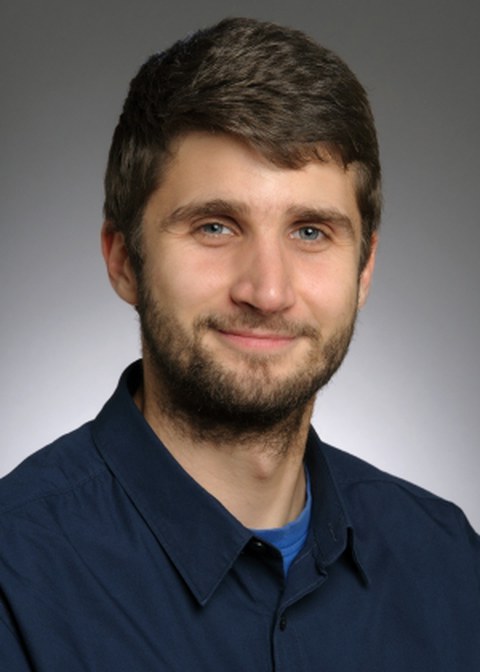
Hendrik Nolte
Driven by the progress of data and compute-intensive methods in various scientific domains, there is an increasing demand from researchers working with highly sensitive data to have access to the necessary computational resources to be able to adapt those methods in their respective fields. To satisfy the computing needs of those researchers cost-effectively, it is an open quest to integrate reliable security measures on existing High Performance Computing (HPC) clusters. The fundamental problem with securely working with sensitive data is, that HPC systems are shared systems that are typically trimmed for the highest performance - not for high security. For instance, there are commonly no additional virtualization techniques employed, thus, users typically have direct access to the host operating system. Since new vulnerabilities are being continuously discovered, solely relying on the traditional Unix permissions is not secure enough.
In this talk, Hendrik Nolte presents Secure HPC, a workflow allowing users to transfer, store and analyze data with the highest privacy requirements, like medical data.
Hendrik Nolte studied Physics at the University of Göttingen and finished his Master's degree with the thesis "Visualization and Analysis of Multidimensional Photoelectron Spectroscopy Data". He joined the HPC-Team at Gesellschaft für wissenschaftliche Datenverarbeitung mbH Göttingen in 2019 to support the general development of an in-house data lake solution specifically tailored for data and compute intensive projects. In addition, he is working on the secure processing of sensitive data on HPC systems.
06th October 2022, 15:00 MESZ, Room A317 Willersbau:
Stephan Janosch (Max Planck Institute of Molecular Cell Biology and Genetics Dresden) - „Research Software Engineering (RSE) - About software in science and the people behind“(slides)
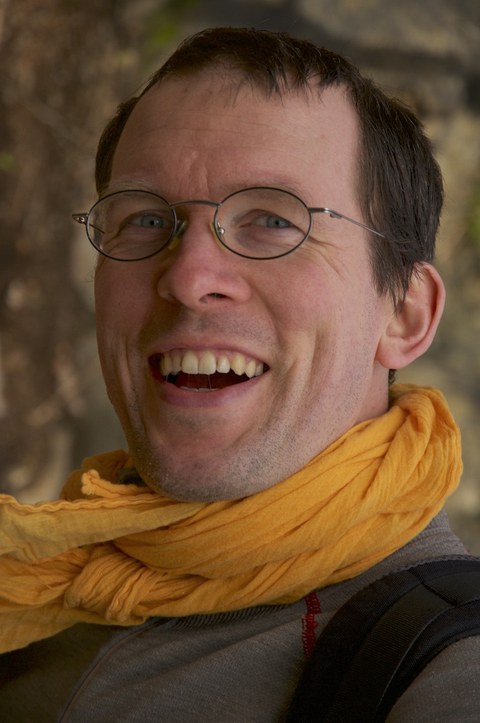
Stephan Janosch
Software is an essential tool in science. You might use standard commercial or open source tools but also custom built software, so called research software. What is the difference between commercial and research software? Who makes research software and how is its development funded? How important is maintenance in regards to reproducibility of scientific results?
Stephan Janosch presents an overview about people, processes and results. Where possible he also looks on national (e.g. NFDI) and international level. His talk gives a broad overview about the current situation featuring references to current developments and answers to the questions above.
Stephan Janosch is a computer scientist by training. He joined the Max Planck Institute of Molecular Cell Biology and Genetics (MPI-CBG) in 2009 in Software Engineering Facility. From 2011 on he supported the Genome Engineering Facility where we worked closely with researchers and technicians in the lab. He is a co-funder of the non profit German RSE association (de-RSE.org) and never stopped caring for scientific software. Since a few years is also active in research data management (RDM).
23rd June 2022, 15:00 MESZ, Room A317 Willersbau:
Josef Weidendorfer (Leibniz-Rechenzentrum der bayrischen Akademie der Wissenschaften & Technische Universität München) - „Malleability for HPC“ (slides)
Parallel code is malleable if it can adjust to dynamic resource changes during runtime, resulting in elasticity (shrinking/expanding), typically triggered by requests from the outside. In this talk, Josef Weidendorfer will discuss benefits of malleability for HPC code, especially for data centers. He will present a library that was developed in a recent project and will explain, how it enables malleability for parallel code, including some example and results. The talk concludes with a discussion about ongoing efforts in the HPC community to better support malleability in HPC.
Josef Weidendorfer works at Leibniz Computing Centre (LRZ) as lead of the Future Computing Group which is developing smooth migration strategies for future HPC systems and evaluating novel technologies. This includes improvement of system level and workload analysis tools as well as parallel programming models towards new usage models for LRZ hardware. Moreover he is a lecturer at Technische Universität München (TUM) with tight contact to the chair of computer architecture and parallel systems. Research interests involve best use of accelerators, heterogeneous computing, and tuning strategies for parallel code. Josef did his habilitation at TUM in 2016 on simulation-driven performance analysis for parallel code. He received his Ph.D. from TUM in 2003 for studying load balancing issues in car crash simulation on industrial code at BMW AG.
02nd June 2022, 15:30 MESZ (additional date), Room A317 Willersbau:
Klemens Barfus and Ronald Queck (Institute for Hydrology and Meteorology, Technische Universität Dresden) - "Modelling across scales – application of HPC to meteorological and climatological problems" (slides)
Processes in the earth climate system are characterized by taking place on a wide range of spatial and temporal scales. Simulation of these processes and their statistics to describe the climate system require the proper description of the processes and their interaction. In this talk we will present meteorological and climatological problems currently addressed by the Chair of Meteorology using the supercomputer of ZIH. Problems range from nearly global problems like the representation of the Innertropical Convergence Zone in General Circulation Models, over the analysis and modelling of deep convection applying the so-called “convection-permitting-modelling” to Large-Eddy-Simulations for natural and urban domains resolving all relevant turbulence elements as well as e.g. individual building features. All problems have in common that models are confronted with measurements.
Problems differ with respect to simulation time, computation time of the individual realizations, the number of realizations, required nodes as well as data storage, making the usage of HPC mandatory. Besides the chances and benefits applying HPC to these problems, we will also discuss remaining limitations.
Dr. Klemens Barfus is a researcher at the Chair of Meteorology of the Technische Universität Dresden. His main interests are related to remote sensing and modelling of clouds and precipitation in the climate system. His first experiences with the HPC was during his PhD simulating microphysics and radiative transfer for cloud field reconstruction from remote sensing data. Currently, he is working on the analysis and simulation of deep convection and its modification over urban areas applying radar data and convection-permitting modelling.
Dr. Ronald Queck is a researcher at the Chair of Meteorology of the Technische Universität Dresden. He is mainly interested in micrometeorological problems and vegetation-atmosphere exchange. He has a broad experience in measurements and modelling in natural and urban ecosystems. Currently, he investigates urban climate problems applying mobile measurements and Large-Eddy-Simulations.
05th May 2022, 15:00 MESZ, ONLINE-Lecture (additional date):
Oliver Knodel (Data Management and HPC, Helmholtz-Zentrum Dresden-Rossendorf) - "HELIPORT - An Integrated Research Data Lifecycle" (slides)
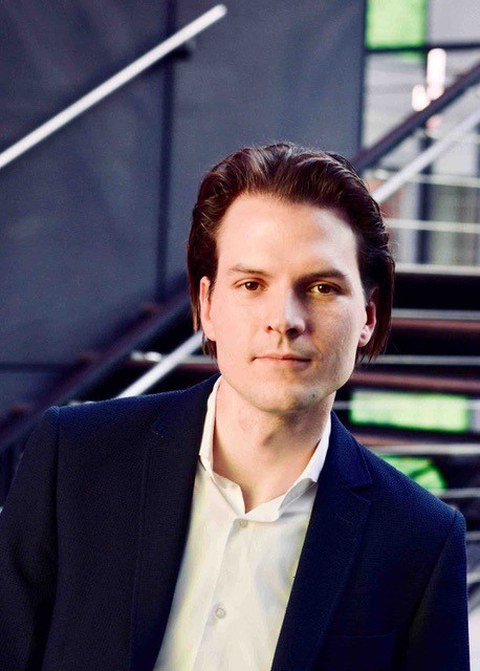
Oliver Knodel
The guidance system HELIPORT aims to make the components or steps of the entire life cycle of a research project at Helmholtz-Zentrum Dresden-Rossendorf (HZDR) discoverable, accessible, interoperable and reusable according to the FAIR principles. In particular, this data management solution deals with the entire lifecycle of research experiments, starting with the generation of the first digital objects, the workflows carried out and the actual publication of research results. For this purpose, a concept was developed that identifies the different systems involved and their connections. By integrating computational workflows (CWL and others), HELIPORT can automate calculations that work with metadata from different internal systems (application management, Labbook, GitLab, and further). In this lecture, the overall system will be presented using a practical example.
Oliver Knodel received a Diploma in Computer Science in 2011 and a Dr.-Ing. in Computer Engineering at the Technische Universität Dresden in 2018. Since the end of 2018, he has been a post-doc at Helmholtz-Zentrum Dresden-Rossendorf, a member of the EU project ExPaNDS and the Mu2e Collaboration at Fermilab, Chicago. Since 2022, Oliver Knodel is group leader of the group Data Management and HPC at the HZDR. His main interests are data management, metadata catalogues and reconfigurable computing.
28th April 2022, 15:00 MESZ, ONLINE-Lecture:
Martin Potthast (Institute for Informatics, University of Leipzig) - "Web Archive Analytics"
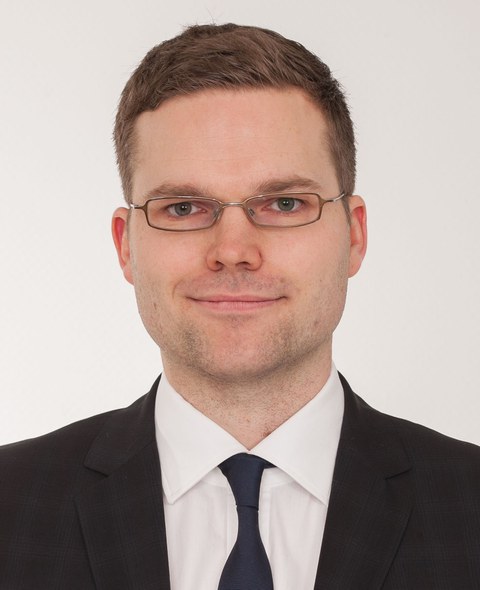
Martin Potthast
The talk recaps how the Web has been systematically archived since around the turn of the millenium, and how popular resources are being exploited at ever increasing scales until today. Besides commercial players such as Google or Microsoft, whose search engines and many other products depend on Web archives maintained in-house, many non-profit organizations are archiving the Web as well. Chief among them is the Internet Archive, which was founded around 1996, alongside Google, and which has meanwhile grown into a fully-fledged digital library with the goal of providing "universal access to all knowledge". In collaboration with the Internet Archive, the partners Bauhaus-Universität Weimar, Leipzig University and Martin-Luther-Universtät Halle have downloaded a substantial part of the the Internet Archive's Web archive, which forms the basis for many joint research projects with applications in information retrieval and natural language processing.
Martin Potthast is head of the Text Mining and Retrieval Group at Leipzig University. His research focuses on information processing, the challenges arising from assessing the credibility and originality of information obtained online, and the development of information systems. Martin Potthast has contributed to the fields of information retrieval, natural language processing, and data science. Several of his achievements have been awarded with scientific prizes.
07th April 2022, 15:00 MESZ, ONLINE-Lecture:
Alexander Fletcher (School of Mathematics & Statistics, University of Sheffield, UK) -
"Chaste: Developing sustainable software for computational biology" (slides)
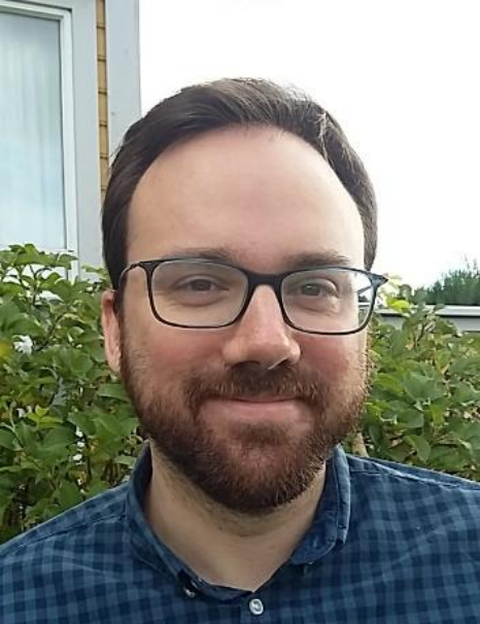
Alexander Fletcher
Gaining a full understanding of complex living systems is essential to tackling some of the most pressing research questions of the 21st Century, from the processes of early development of an organism to the effects of ageing. This system-level behaviour arises from complex interactions between component processes at many levels of biological organisation. For example, the development of a complex functional multicellular organism from a single cell involves tightly regulated and coordinated cell behaviours coupled through short- and long-range biochemical and mechanical signals. To truly comprehend this complexity, alongside experimental approaches we need computational models, which can link observations to mechanisms in a quantitative, predictive, and experimentally verifiable way. To this end we are developing Chaste (https://github.com/chaste), an open-source C++ library for multiscale modelling of biological tissues and cell populations. In this talk I will discuss how Chaste has been used to gain insight into a variety of biological processes. I will also highlight some of our ongoing and future work to improve the reproducibility and re-use of such models.
Dr. Alexander Fletcher is a Lecturer in the School of Mathematics and Statistics, and a group leader at the Bateson Centre, at the University of Sheffield. He previously pursued doctoral and postdoctoral research at the Wolfson Centre for Mathematical Biology at the University of Oxford. His group develops and applies a range of mathematical and computational modelling approaches to understand the formation, dynamics, and evolution of multicellular tissues. Recent applications include the patterning and morphogenesis of epithelial tissues. To support this work, he is a founding developer of Chaste, the first open-source simulation package for off-lattice and multiscale models of cell populations.
31st March 2022, 15:00 MESZ, ONLINE-Lecture:
Peter Hinow (Department of Mathematical Sciences, University of Wisconsin, USA) -
"Tiny Giants - Mathematics Looks at Zooplankton" (slides) (movie)
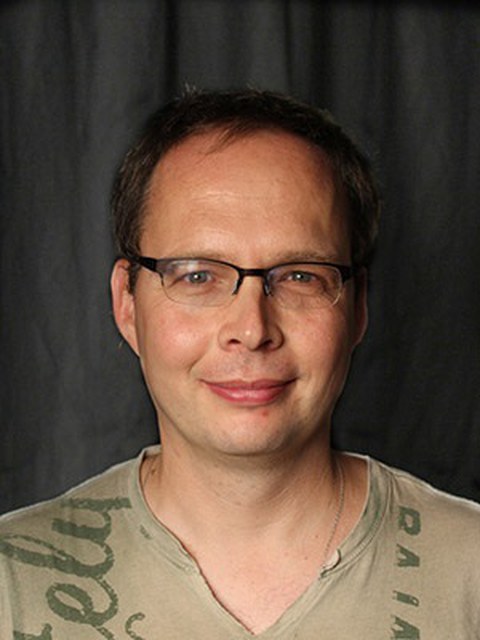
Peter Hinow
Zooplankton is an immensely diverse group of organisms occupying every corner of the oceans, seas, and freshwater bodies on earth. They form a crucial link between autotrophic phytoplankton and higher trophic levels such as crustaceans, mollusks, fish, and marine mammals. Changing water temperatures, salinities and decreasing pH values currently create monumental challenges to their well-being. A significant subgroup of zooplankton are crustaceans of sizes between 1 and 10 mm. They have extremely acute senses that allow them to navigate their surroundings, escape predators, find food and mate. In a series of works with Rudi Strickler (Department of Biological Sciences, University of Wisconsin - Milwaukee) he has investigated various behaviors of crustacean zooplankton. These include the visualization of the feeding current of the calanoid copepod Leptodiaptomus sicilis and the communication by sex pheromones in the copepod Temora longicornis. In these studies, tools from optics, ecology, computational fluid dynamics, and computational neuroscience are used.
Peter Hinow received a Diplom-Mathematiker from the Technische Universität Dresden and a PhD in Mathematics from the Vanderbilt University, Nashville, Tennessee in 2007. This was followed by a postdoc at the Institute for Mathematics and its Applications (IMA) at the University of Minnesota. Since 2009 he has been on the faculty of the Department of Mathematical Sciences at the University of Wisconsin - Milwaukee. His primary interests are mathematical modeling of drug delivery to the brain using ultrasound-sensitive liposomes and the behavioral ecology of zooplankton.

